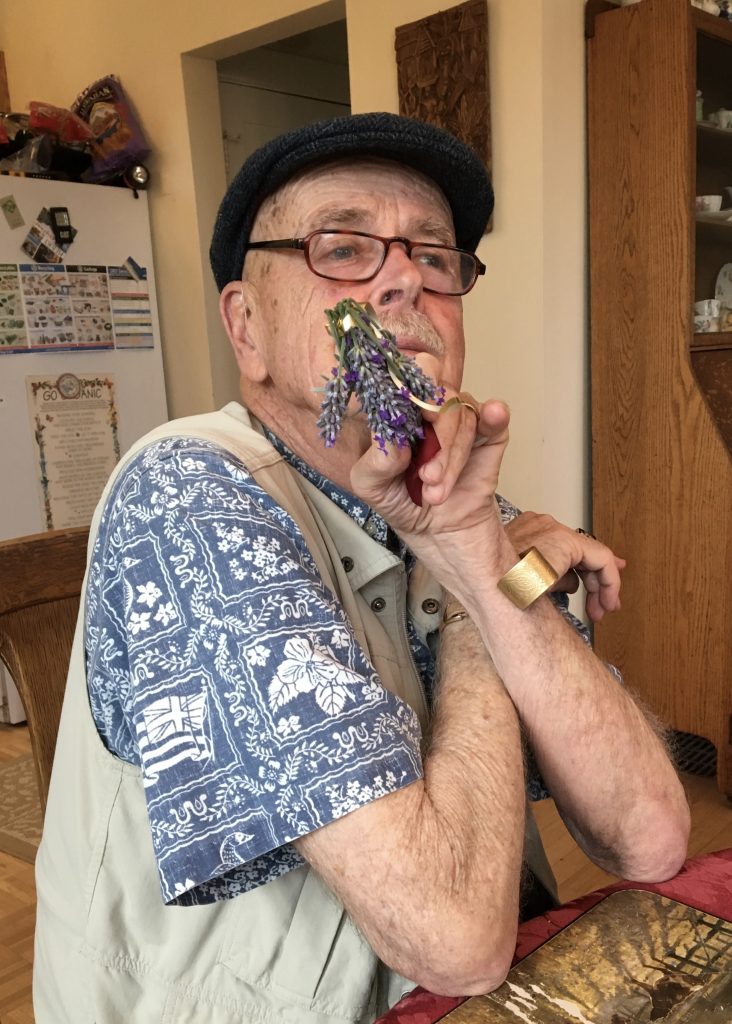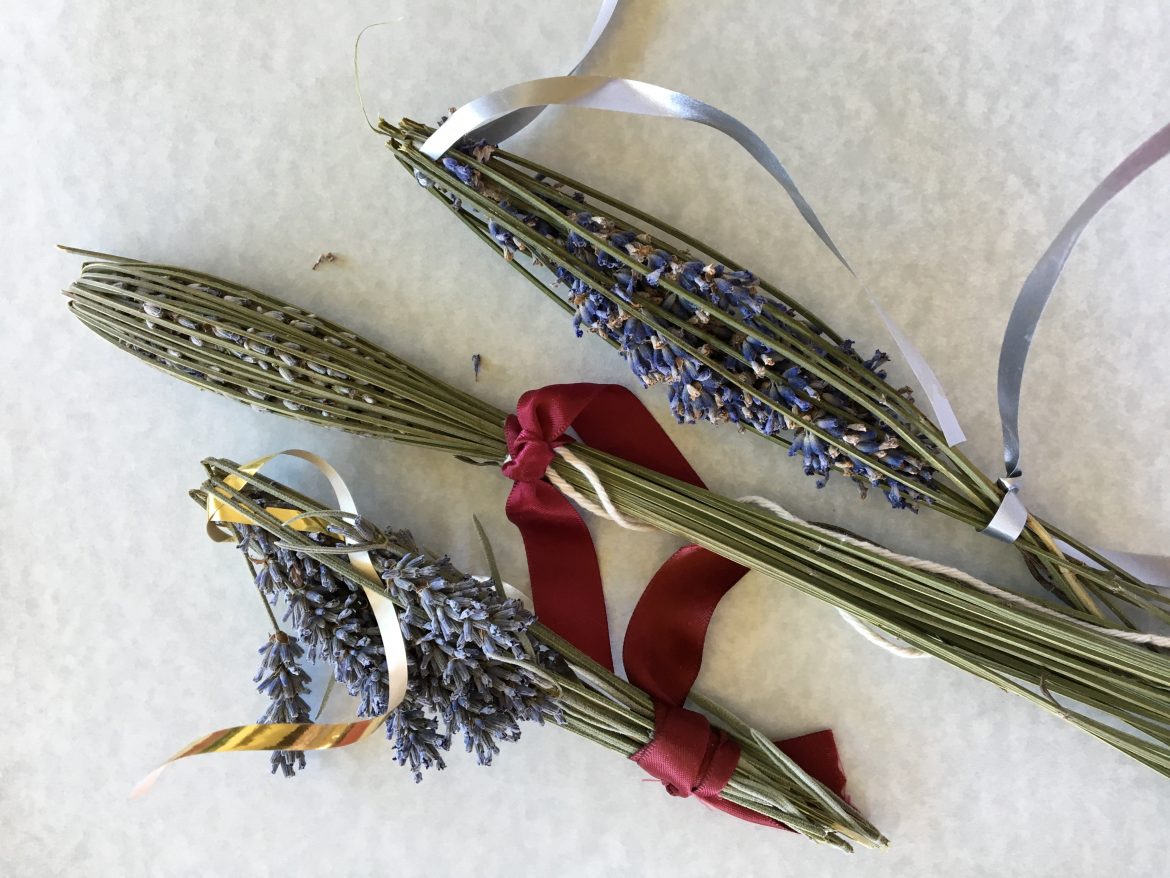by Christine Sine
Last week at our Mustard Seed House community meeting we made lavender wands. We had perfect examples to follow, many of them beautiful images from Pinterest and DIY websites. We had good instructions with perfect looking diagrams that made it look so easy, but none of us made perfect wands as the photo above illustrates.
As I reflected back over our experience, I realized that the imperfections in our wands did not matter. It was not how beautiful the end result looked that we cared about, it was the delightful process we engaged in and the enjoyment of each other along the way that mattered. The imperfections of the end results added to our fun and laughter.
More than anything we relished the fragrance of our wands. We crushed them in our hands and allowed the lavender to waft around the room. Ironically the more imperfect our wands, the more fragrance they seemed to emit. We took them home, maybe to stand on the table, to put under our pillows or to add fragrance to a drawer. It was a memorable experience.
Spirituality Is Imperfect
Instagram, Pinterest and Facebook images make us think that everything we do should have perfect results. We are embarrassed to publish imperfect photos and pieces of art. We hide our own physical imperfections with cosmetics and surgery.
Unfortunately this craving for perfection washes over our spiritual lives too. We hide our doubts about God and faith behind plastic smiles and legalistic rules. We are afraid to pray out loud in case we make mistakes. We refuse to admit our struggles with temptations and sin because we want our friends and families to think we have it all together where our relationship with God is concerned.
Yet just as our lavender wands were imperfect, so too is our spirituality. None of us are perfect. Mixed up, broken, scarred, and flawed. That sums up all human beings. When we are willing to admit that, about ourselves and about each other, we too can learn to laugh at the mistakes and the blemishes. We no longer need to hide behind facades of seeming perfection. In the process we learn the joy of shared humanness and the delight of spiritual exploration. I suspect that the more we allow our imperfections to stick out, the more our fragrance rises as an offering before God too.
In Spirituality of Imperfect, authors Ernest Kurtz and Katherine Ketcham start with the insights of Alcoholics Anonymous and use the wisdom of many traditions to help us understand that our tendency to play God and try to be perfect is one of the most tragic of human mistakes .
it is only by ceasing to play God, by coming to terms with errors and shortcomings, and by accepting the inability to control every aspect of their lives that alcoholics (or any human beings) can find the peace and serenity that alcohol (or other drugs, or sex, money, material possessions, power or privilege, ) praise but never deliver (5)

lavender wands aren’t perfect and neither are we
Our Knowledge of God is Imperfect
Our knowledge of God is imperfect at the best of times and the more we learn, the less we seem to know. Admitting that we are all pretty ignorant when it comes to our knowledge of God is good for us. Realizing that asking questions and admitting doubt are more powerful spiritual tools than pretending to know everything is both humbling and empowering. a spirituality of imperfection is more interested in questions than in answers, more a journey toward humility than a struggle for perfection. (The Spirituality of Imperfection, 5)
So create something messy and imperfect today. Post it on Facebook, instagram or Pinterest, or even as a comment on this post. Reflect on it as an image of your own spiritual state.
What does your imperfect image teach you about yourself and about God?
How does it feel when you share your imperfections with others? What new insights does this sharing give you?
Is there a further response it encourages you to make?

